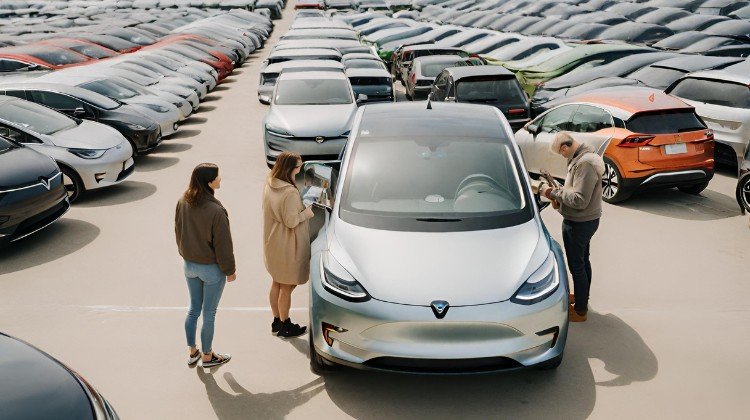When you’re in the market for an electric vehicle (EV), the excitement of choosing a model with the latest technology can be overshadowed by the daunting question: should you buy new or opt for a used one? The depreciation of EVs is a hot topic, as it’s not just about the car losing value over time; it’s also about the cost of ownership, potential savings, and making a smart investment. Let’s plug into the factors that drive EV depreciation and chart a course for making an informed buying decision.
1. Understanding EV Depreciation Trends
Electric vehicles are relatively new to the automotive scene, and their resale values are still stabilizing. Unlike their internal combustion counterparts, EVs come with a high upfront cost, primarily due to the expensive battery packs that power them. However, they often depreciate faster, and the market for used EVs is only now beginning to mature.
2. The Cost of New vs. Used
The allure of driving a brand-new EV off the dealership lot comes with the burden of immediate and steep depreciation. A new car can lose a significant percentage of its value in the first few years. In contrast, a used EV has already taken the initial hit in depreciation, allowing you to buy it at a more reasonable price. But, as Hertz’s experience with Tesla’s price cuts shows, the market can be unpredictable, and what seems like a good deal now might not be in a year’s time.
3. Repair Costs and Maintenance Savings
While routine maintenance for EVs generally costs less—no oil changes needed—repairing damage can be a costly affair. As Hertz found, fixing an electric car might set you back twice as much as similar repairs on a gas-powered vehicle. This factor plays a significant role in the depreciation of an EV and should weigh heavily on your decision to buy new or used.
4. Battery Life and Replacement Costs
The battery is the heart of an EV, and its health is key to the vehicle’s value. As batteries age, they degrade, losing capacity and range. The cost of replacing an EV battery can range from $4,000 to over $20,000, depending on the vehicle. It’s a critical consideration, especially for used EVs approaching the end of their warranty period.
5. Resale Value and Industry Predictions
How well an EV holds its value over time is still largely speculative. Factors like battery lifespan, regulatory changes, and supply and demand will continue to shape the resale market. For now, industry experts are making educated guesses, but the consensus is that as long as the battery is in good shape, EVs should retain a reasonable portion of their value.
6. Financial Incentives and Tax Credits
New EV buyers can often benefit from government incentives, rebates, and tax credits, which can offset the higher initial cost and depreciation. However, these benefits are typically not transferable, meaning second-hand buyers won’t reap the same rewards.
7. The Impact of Technological Advancements
The rapid pace of technological advancements in EVs means that newer models are continuously outperforming older ones, which can accelerate depreciation. This is a double-edged sword for new EV buyers, as today’s top-of-the-line model could quickly become outdated.
The Verdict: New or Old?
The decision to buy a new or used electric vehicle depends on a mix of personal preferences, financial considerations, and risk tolerance. Here are key takeaways to guide you:
- If you buy new: Prepare for significant depreciation in the first few years but enjoy the benefits of the full warranty, the latest technology, and potential tax credits.
- If you buy used: You can avoid the initial depreciation hit and get more value for your money, but be prepared for potentially higher repair costs and a shorter battery lifespan.
Conclusion
Whether you choose to invest in a new electric chariot or go the pre-owned route, it’s essential to do your homework. Consider the total cost of ownership, including potential repair costs, the remaining battery life, and the vehicle’s projected depreciation. With a clear understanding of these factors, you can shift gears toward a decision that won’t leave your finances running on empty in the long run.
Remember, the EV market is dynamic, and what makes sense today may change tomorrow. Keep your finger on the pulse of industry trends, and don’t hesitate to seek advice from financial advisors or automotive experts who can provide personalized guidance tailored to your situation.









Reader Interactions